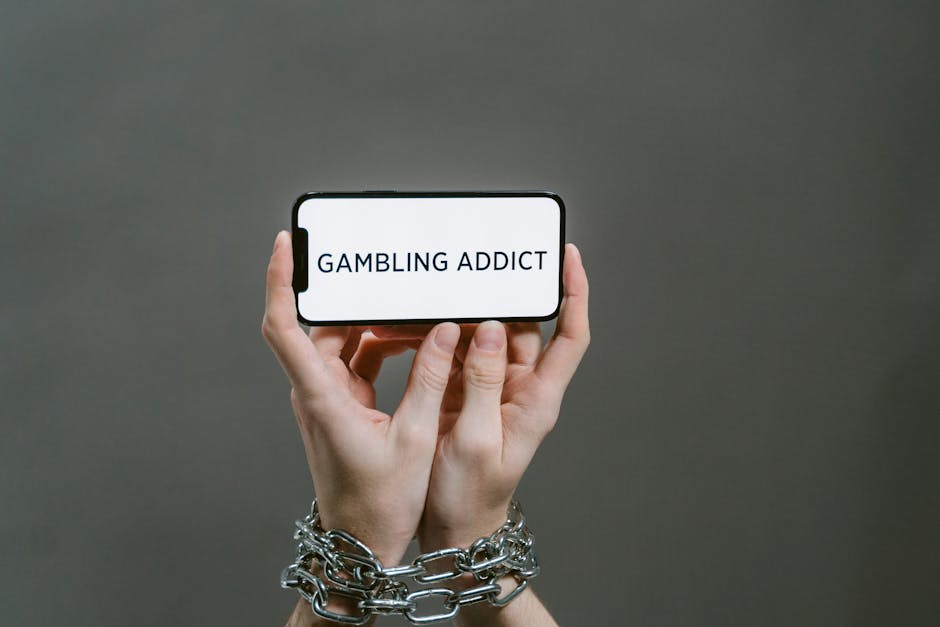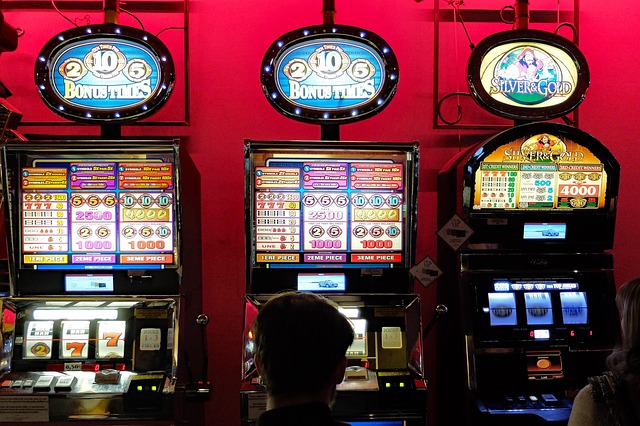Introduction
Self-exclusion programs are formal agreements that allow individuals to voluntarily ban themselves from gambling environments—whether that’s a physical casino, an online betting site, or both. Once enrolled, participants are denied access to venues and are legally protected from being targeted with promotions or having their exclusion ignored. It’s not done to punish people, but to give them space and clarity when they need it most.
These programs exist for one reason: gambling, while entertaining for many, has a dark side. For some, it sneaks past being a hobby and turns into obsession—fast. And when that line blurs, the financial, emotional, and psychological costs add up. Self-exclusion is built for those who recognize they’ve lost—or are close to losing—control over their gambling habits. It’s a tool meant to help them hit pause, regroup, and take back agency over their time and money.
Gambling appeals for obvious reasons. It’s thrilling. It offers the chance—however remote—of instant reward. But that unpredictability, that rush, is also the danger. For people vulnerable to compulsive behavior or life stressors, it can quickly become a destructive cycle. Self-exclusion is one way to break that cycle before it breaks them.
What Self-Exclusion Looks Like in Practice
Signing up for self-exclusion isn’t complicated, but it does require intent. Most programs allow people to enroll in person at a casino or betting shop—usually by speaking with a staff member trained in responsible gambling. There’s also the option to register online through dedicated platforms or via support services that specialize in addictive behaviors. Some regions have centralized systems, making it easier to apply a single ban across multiple venues and platforms.
Timeframes vary. Temporary exclusions might last six months, a year, or anything in between. Permanent exclusions are also available—for those who are ready to take a long-haul approach to recovery. While nothing’s truly “permanent” if someone firmly decides to opt back in down the road (depending on the jurisdiction), the longer bans are designed to create space and distance from harmful patterns.
Self-exclusion doesn’t just apply to the physical casino floor. It extends to online gambling platforms, sports betting apps, and even some lottery systems. With digital gaming on the rise, most modern tools include ways to lock yourself out of virtual gambling just as effectively as walking away from a roulette table. The goal is full coverage, wherever gambling happens.
Protects Mental and Financial Health
Self-exclusion programs play a vital role in interrupting harmful gambling cycles and offering individuals a chance to regain control over their personal well-being.
Key Benefits:
- Breaks the compulsive gambling loop: Eliminating access to betting environments helps disrupt behavioral patterns that fuel addiction.
- Limits impulse spending: By enforcing a timeout from casinos and betting platforms, users reduce the risk of overspending and accumulating debt.
- Reduces stress and anxiety: Taking a step back from high-risk environments can relieve the emotional strain often associated with chronic gambling losses.
Empowers Personal Responsibility
Self-exclusion isn’t a punishment—it’s a conscious and empowering decision to take control. This choice promotes self-awareness and fosters long-term behavioral change.
Why it matters:
- Proactive, not reactive: It allows individuals to take charge before gambling becomes unmanageable.
- Reinforces healthier habits: Choosing to self-exclude can be a turning point toward more sustainable behaviors.
- Builds accountability: A formalized commitment helps reinforce self-trust and personal growth.
Supports Recovery and Rehab Efforts
For those in recovery, self-exclusion adds an extra layer of support to underlying treatment efforts. It doesn’t replace therapy, but it reinforces it.
Common Uses Within Recovery Plans:
- Comprehensive treatment tool: Often used alongside counseling and structured rehab programs.
- Complements financial planning: Eliminating access helps maintain budgeting goals and reduces relapse risk.
- Removes environmental triggers: Keeps vulnerable individuals away from high-risk scenarios when motivation is low.
Sends a Message to the Industry
Widespread self-exclusion use communicates a strong message—player safety must be a priority.
Industry-Wide Impacts:
- Promotes responsible gaming: Encourages gambling venues and platforms to take ethical responsibility for their users.
- Raises regulatory standards: Shows regulators the importance of tools that prioritize player protection.
- Shifts public perception: Strengthens the image of gambling spaces as safer, more mindful environments.
How Operators Enforce Self-Exclusion
Today’s self-exclusion systems are more than just checkboxes—they’re becoming smarter, faster, and harder to slip through. Casinos are increasingly turning to facial recognition technology at entry points to spot individuals on exclusion lists in real time. Some even cross-reference photo databases across properties, which makes it tougher to game the system by switching venues.
ID checks are now routine, especially at betting terminals and online sign-ins. Centralized databases allow for quick matching, instantly flagging those with active exclusions, whether it’s a day-old ban or a long-term timeout. These systems are not siloed either—more operators are working together across regions and even countries to respect cross-border exclusions. If you’re excluded in one jurisdiction, expect that to follow you elsewhere.
Online enforcement is getting sharper too. AI-driven tools monitor account activity for signs of problematic behavior. If a user tries creating multiple accounts or betting in patterns typical of addiction, systems can step in—flagging accounts for review or cutting off access. This layer of digital intelligence adds another safeguard, supporting both operators and the individuals trying to stay away.
The goal isn’t surveillance for the sake of control—it’s to give people a fighting chance to stick to their choices and find space to recover.
Limitations and Areas for Improvement
Self-exclusion programs are valuable, but they’re not bulletproof. The biggest gap? Loopholes. Even after signing up, users can often access offshore or unregulated gambling sites that aren’t bound by national enforcement rules. These platforms exist outside the system and make it all too easy to slip back into risky habits.
Then there’s the illusion of safety. Just because someone is in a self-exclusion program doesn’t mean they’re fully protected. Without ongoing support—like therapy, financial coaching, or peer groups—a person can still find ways to gamble or fall into the same mental traps. The commitment needs backup.
On top of that, the sign-up process itself can be clunky. If registering or removing yourself from a program feels like navigating a maze, people won’t stick with it. The system needs to be clearer, quicker, and more intuitive. The easier it is to take that first step—or to update your status when needed—the more effective these initiatives can be.
The programs are a strong start. But for them to truly work, they need follow-through, smarter tech, and fewer cracks.
Real Stories: Why It Works
Sometimes the numbers don’t tell the whole story. People do. Real users of self-exclusion programs aren’t just quitting cold turkey—they’re reshaping their lives in careful, committed ways.
Take Jenna, 38, who signed up for a self-exclusion program after years of weekend binges at the casino. She says blocking access wasn’t the ultimate fix, but it gave her breathing room. In her words: “It gave me a pause I couldn’t give myself.” During that pause, she reconnected with her sister, started therapy, and began rebuilding trust she’d lost over years of gambling-fueled secrets.
For Marcus, a 29-year-old who favored online sports betting, adding a self-ban wasn’t dramatic. It was strategic. “I didn’t want to hit rock bottom,” he says. By removing the constant lure of app notifications and live bets, he was able to focus on his small business. Six months out, he has more savings—and fewer arguments with his partner.
These are small shifts with huge ripple effects. A few minutes filling out an exclusion form can lead to months of clarity. For many, it’s the spark that tips the balance back toward control. Not perfection. Not a miracle. Just space and time to take your next step forward—on your own terms.
Helpful Tips for Staying in Control
Staying in control of your gambling habits doesn’t just happen—it requires active decision-making, self-awareness, and the right tools. Here’s how you can recognize the signs and take practical steps to protect yourself:
When to Consider Self-Exclusion
Knowing when to take a break—or walk away entirely—can make all the difference. You may want to consider self-exclusion if:
- Gambling is no longer about entertainment, but feels like a necessity
- You’re spending more time and money than planned or feel constant guilt afterward
- Loved ones express concern about your gambling behavior
- You’re chasing losses or using gambling to escape stress, anxiety, or personal struggles
- Your financial obligations or relationships are being negatively impacted
Recognizing these signs is not a failure—it’s an opportunity to take control before things get worse.
Practical Tools That Help
In addition to self-exclusion, incorporating supportive tools and resources into your routine can greatly improve your ability to manage your play:
- Budgeting apps: Track and limit spending to keep gambling from interfering with financial goals
- Timer or break tools: Set time limits or reminders to take breaks during longer gameplay sessions
- Spending limits: Use built-in casino features to pre-set daily, weekly, or monthly deposit ceilings
- Support networks: Join a recovery group or talk to someone you trust about your goals and progress
These tools, when used together, create a supportive framework that can help you gamble more mindfully—or step away altogether if needed.
Want More Strategies?
If you’re looking for additional tips on maintaining control while enjoying games responsibly, check out this guide:
Tips for Staying in Control While Playing the Jackpot
Building healthy habits starts with simple, intentional steps. Whether it’s budgeting better or recognizing risky behavior, every bit of effort contributes to long-term balance and well-being.
Final Takeaway
Self-exclusion isn’t about slamming the door shut for good. It’s about pressing pause—so you can regroup, reset, and get back in the driver’s seat. For most people, gambling is entertainment. But when the fun shifts into pressure, guilt, or financial stress, it’s time to take a step back. That’s where self-exclusion comes in. It’s not a sign of weakness. It’s a move of strength.
Used the right way, this tool can help you carve out space to think clearly, protect your finances, and build better habits. You don’t have to hit rock bottom to justify it. In fact, acting early is the smarter play. Because the goal isn’t quitting forever. It’s taking control of how—and when—you engage. And trust this: your future self will thank you.




